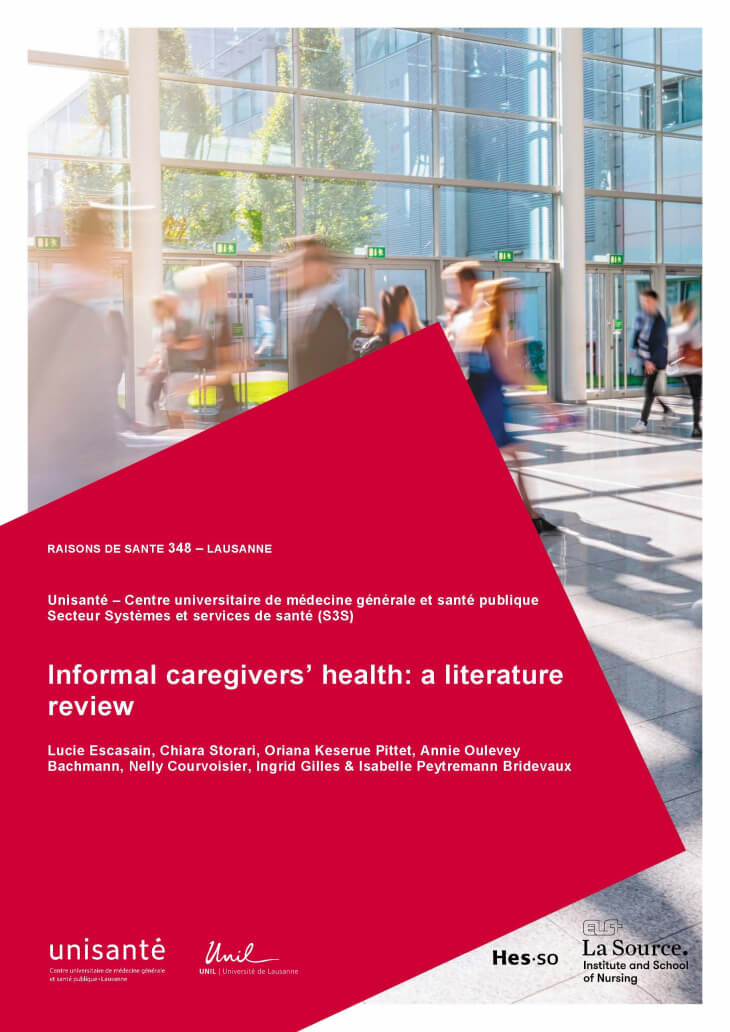- ESCASAIN Lucie
- STORARI Chiara
- KESERUE PITTET Oriana
- OULEVEY BACHMANN Annie
- SENAC Nelly
- GILLES Ingrid
- PEYTREMANN BRIDEVAUX Isabelle
Informal caregivers’ health: a literature review
Abstract
Switzerland is facing a shortage of healthcare professionals that, according to experts, will worsen in the coming years due to the ageing of the population and the rise in chronic diseases. In this context, informal caregiving is more important than ever for assuring the well-being of loved ones. However, informal caregivers may themselves face health issues that are often ignored. The aim of this literature review is to highlight the determinants that are associated with informal caregivers’ well-being, quality of life, and burden to elaborate a baseline questionnaire for a prospective national cohort of informal caregivers.
The literature review focused on informal caregivers’ quality of life, well-being, and burden as outcomes and was conducted between October 2021 and May 2022 using online databases (PubMed and CINAHL) targeting reviews and meta-analyses published between 2010 and 2021 in English or French that have an available abstract. A total of 847 references were selected. After removing duplicates and references published before 2010, 777 documents were assessed based on the abstract. References that reported results of a review of any type about informal caregivers’ well-being or quality of life or burden or any dimensions related to those constructs (e.g., depression) and that included an abstract with a method section were selected. After the removal of 502 references, the remaining 275 items were assessed based on the full text and only reviews about the appropriated outcomes that had an abstract and a method section conducted in Europe and/or North America and/or Australia and/or New Zealand were selected. At the end of the selection process, a total of 47 references were chosen in this literature review. References specific to COVID-19 were excluded because we believe that the pandemic likely aggravated some issues experienced by informal caregivers and induced some issues specific to the crisis. Thus, such references would not be representative of the overall experience of informal caregivers.
The literature review’s results showed that psychosocial factors regarding informal caregivers’ health as identified by the considered outcomes have been widely investigated between 2010 and 2021. Among the aspects considered, social support, coping strategies, psychological health, valued activities, and employment were the most cited as factors affecting informal caregivers’ health as identified by the considered outcomes. However, cognitive, functional, behavioural, and neuro-(psychiatric) symptoms of the loved one also affected informal caregivers’ health considerably. Contextual factors, such as receiving information, formal support from healthcare professionals, financial difficulties, respite, also seemed to be of great importance regarding these outcomes.
